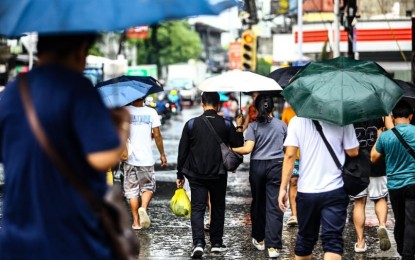UN Reports Shortage of Water and Medicine After Myanmar Earthquake
Myanmar earthquake survivors face severe shortages of clean water, medicine, and shelter, with aid efforts hampered by logistical and security challenges. The UN warns of a worsening humanitarian crisis as relief organizations struggle to reach affected areas.

The United Nations has raised concerns over a growing humanitarian crisis in Myanmar following a powerful earthquake that struck the region. Survivors are now struggling with limited access to clean water, medicine, and shelter as aid efforts remain slow due to logistical challenges and ongoing instability.
Critical Shortages and Urgent Needs
According to the UN and various humanitarian organizations, thousands of displaced residents are in dire need of essential supplies, with many left without access to basic necessities. Reports indicate that clean water and medical aid are particularly scarce, increasing the risk of disease outbreaks among those affected.
"The situation is deteriorating quickly," a UN official stated, emphasizing the urgent need for international assistance. Relief efforts have been hampered by damaged infrastructure and communication breakdowns, making it difficult for aid groups to reach remote areas.
Rising Death Toll and Worsening Conditions
The earthquake, which struck Myanmar on March 31, has already claimed hundreds of lives, with the death toll expected to rise as rescue operations continue. Many villages and towns have been devastated, leaving survivors without homes or access to emergency relief.
Reports from affected communities describe families sleeping in the open, exposed to the elements, while hospitals struggle to treat the growing number of injured victims. Some medical facilities have been destroyed or severely damaged, further straining the healthcare system.
Slow Aid Response and Security Challenges
Aid agencies are facing difficulties in delivering support due to ongoing conflicts in Myanmar. Political instability and military restrictions have made it harder for international organizations to coordinate relief operations effectively. The UN has called for unimpeded access to affected areas, urging the Myanmar government to allow humanitarian assistance to reach those in need.
A spokesperson for an aid group working in the region stated, "We are doing everything we can, but we need more support and access. The survivors cannot wait."
Global Response and Assistance
Countries and humanitarian organizations worldwide are stepping up efforts to provide aid, but more assistance is needed to address the growing crisis. Neighboring nations have pledged support, while international relief agencies are mobilizing resources to send food, water, and medical supplies.
The UN and other aid groups are urging the global community to act swiftly to prevent a worsening humanitarian disaster. The situation remains critical, and without immediate intervention, the survivors of the Myanmar earthquake may face even greater challenges in the days ahead.
Sources:
- https://www.gmanetwork.com/news/topstories/world/941274/water-and-medicine-in-short-supply-after-myanmar-earthquake-says-un/story/
- http://reuters.com/sustainability/land-use-biodiversity/un-agency-shelter-clean-water-medicine-short-supply-after-myanmar-earthquake-2025-04-01/
- http://reuters.com/business/environment/survivors-myanmar-quake-left-without-food-water-shelter-aid-groups-say-2025-04-01/
What's Your Reaction?












/https://tf-cmsv2-smithsonianmag-media.s3.amazonaws.com/filer_public/54/66/546650fa-26a4-40fd-8d6d-5a7a04540f81/rosetta2.png)
:max_bytes(150000):strip_icc():focal(999x0:1001x2)/robert-prevost-050825-1-39395418ab494da5a3a700c9478e66c8.jpg)















































format(webp))
format(webp))

























